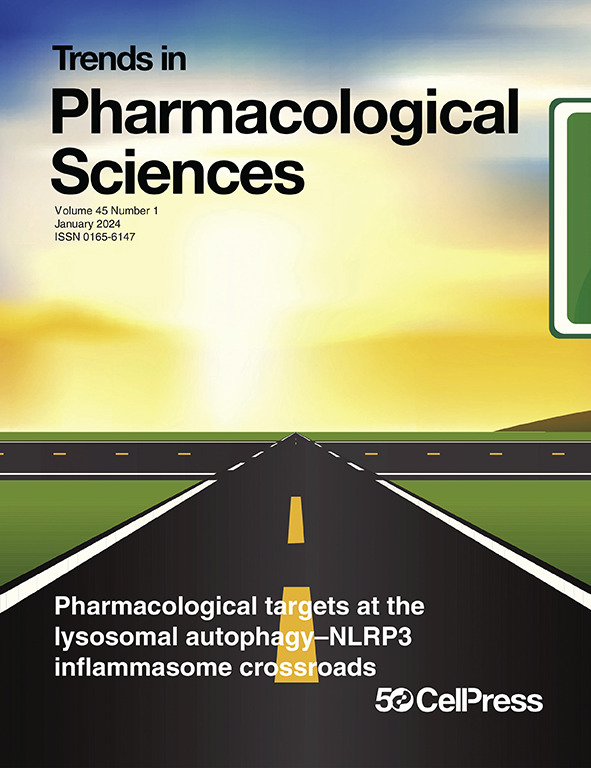肠源性脑T细胞通过IFN-γ调节行为。
IF 19.9
1区 医学
Q1 PHARMACOLOGY & PHARMACY
Trends in pharmacological sciences
Pub Date : 2025-09-01
Epub Date: 2025-07-31
DOI:10.1016/j.tips.2025.07.009
引用次数: 0
摘要
在稳态条件下,免疫细胞在脑实质内的构成存在是有争议的。Yoshida等人最近的发现表明,皮层下器官含有肠道和脂肪来源的T细胞,这些T细胞分泌IFN-γ来调节脑内稳态和肠-脂肪-脑免疫轴的适应性行为。本文章由计算机程序翻译,如有差异,请以英文原文为准。
Gut-derived brain T cells modulate behavior via IFN-γ.
The constitutive presence of immune cells within brain parenchyma under homeostatic conditions is debated. Recent findings by Yoshida et al. have shown that the subfornical organ harbors gut- and adipose-derived T cells that secrete IFN-γ to regulate brain homeostasis and adaptive behavior in the gut-fat-brain immune axis.
求助全文
通过发布文献求助,成功后即可免费获取论文全文。
去求助
来源期刊
CiteScore
23.90
自引率
0.70%
发文量
132
审稿时长
6-12 weeks
期刊介绍:
Trends in Pharmacological Sciences (TIPS) is a monthly peer-reviewed reviews journal that focuses on a wide range of topics in pharmacology, pharmacy, pharmaceutics, and toxicology. Launched in 1979, TIPS publishes concise articles discussing the latest advancements in pharmacology and therapeutics research.
The journal encourages submissions that align with its core themes while also being open to articles on the biopharma regulatory landscape, science policy and regulation, and bioethics.
Each issue of TIPS provides a platform for experts to share their insights and perspectives on the most exciting developments in the field. Through rigorous peer review, the journal ensures the quality and reliability of published articles.
Authors are invited to contribute articles that contribute to the understanding of pharmacology and its applications in various domains. Whether it's exploring innovative drug therapies or discussing the ethical considerations of pharmaceutical research, TIPS provides a valuable resource for researchers, practitioners, and policymakers in the pharmacological sciences.

 求助内容:
求助内容: 应助结果提醒方式:
应助结果提醒方式:


